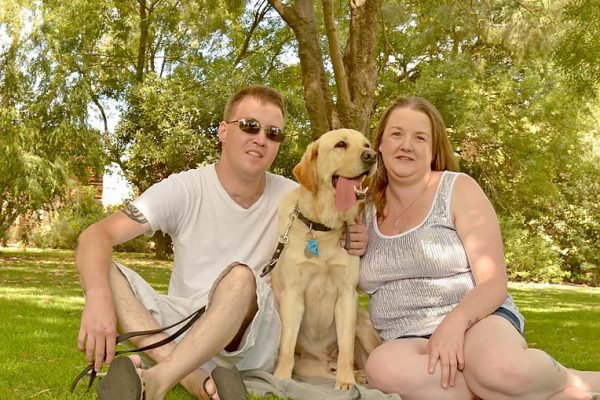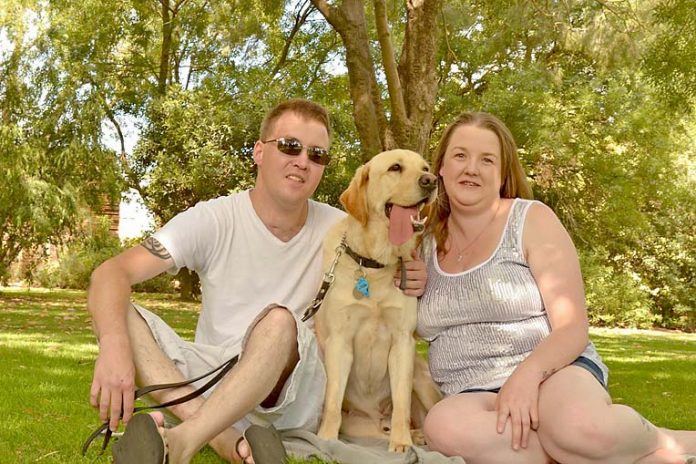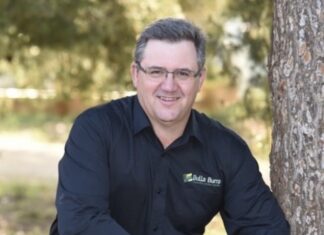
MOUNT Gambier man Tim Doyle has battled health issues for much of his 32 years, living with cystic fibrosis, but he fears COVID-19 would be one fight he cannot win.
The recent spike in COVID-19 cases in Victoria has triggered a heart-felt plea from the 32 year old for people to continue heeding the advice of governments and health authorities to help halt a second wave.
Mr Doyle is considered high risk and more susceptible to the impacts of COVID19 due to his health condition, with his treatment including a lifesaving double lung transplant in 2008.
However, his health continues to be impacted by the disease, which primarily targets lung and digestive system function.
Recently, Mr Doyle’s regular transplant treatment in Melbourne was put on hold due to the pandemic, which has presented a whole new set of challenges for Mr Doyle and his wife Belle.
“Earlier this year I spent nine days in a Melbourne hospital and I saw how complacent some people were first hand,” Mr Doyle said.
“People seem to be thinking more about their livelihoods rather than their lives.
“It is all a bit much. I am definitely anxious about it all and I am just not sure on what will happen.”
Mr Doyle said the recent spike in cases across the border in Victoria had been overwhelming for him, now having to consider treatment in Adelaide after over a decade of travelling to Melbourne.
“Transplant care is complicated and you can not just chop and change doctors,” he said.
“Last year, I was going to Melbourne every four to eight weeks, but now we are talking about not even going to Victoria.
“We are trying to do everything over the phone and if I do need to go to a hospital we are trying to put everything off. It is really not ideal.”
Mr Doyle said it had come to the point where he was unable to have his lung function and capacity measured due to the risks involved.
“There are some instances where we are taking shortcuts. We can not do certain tests as we have to weigh up the risks of going into hospital or staying home,” he said.
“I have not been able to do a spirometry test in over six months so I have no idea how my lungs are functioning.
“I guess you really can not manage what you can not measure and I do not know whether I am going up or down at the moment.”
In lockdown with his wife at home, Mr Doyle said he believed it was only a matter of time before cases returned to South Australia, wanting borders to stay closed.
“My wife is feeling pretty nervous about going back to work on Thursday and I am also nervous going back myself,” he said.
“As soon as we get a few people in Mount Gambier who do not take it seriously is when it can all get out of hand.”
Advising people to not be complacent and to continue following restrictions, Mr Doyle said the risk was closer than what some people thought.
“People seem to think that this is happening somewhere else in a far away land and it does affect them,” he said.
“My advice is just to use common sense and the stuff we have been told for over 30 years.
“It just gets to me when you see other people who just do not really care.”
Mr Doyle said he would continue to stay indoors whenever possible as he could not risk falling ill, whether it was COVID-19 or just a common cold.
“Each time I catch something, it knocks me back that little bit and I never quite recover the same,” he said.
“I do not get off lightly with just a cough and running nose. I end up with viral pneumonia, four litres of oxygen, intravenous antibiotics and an uncomfortable hospital bed five hours away in a major metropolitan hospital.
“Australia might enter a recession if it means staying alive, a recession will not kill me, but COVID-19 probably will.”








